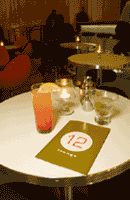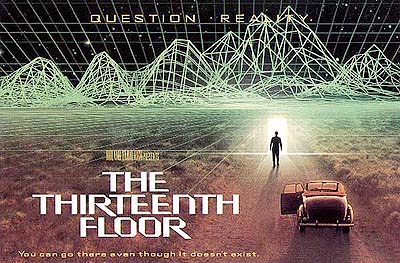We learn something by doing it. There is no other way.
---John C. Holt Ay, there's the rub; one learns what one does in life, what it is that one happens to be doing, usually out of sheer necessity rather than choice (most people do, and many people often have little choice in the matter, either because of lack of opportunities or lack of know-how) instead of learning what it is that one could be learning in order to do what it is that one yearns to be doing (self-actualization) or what it is that one "ought to" be doing.
Ay, there's the rub; one learns what one does in life, what it is that one happens to be doing, usually out of sheer necessity rather than choice (most people do, and many people often have little choice in the matter, either because of lack of opportunities or lack of know-how) instead of learning what it is that one could be learning in order to do what it is that one yearns to be doing (self-actualization) or what it is that one "ought to" be doing.
And so it is that one often does and learns what one “must” or whatever society expects of one---the oligarchy in power or “the invisible hand of the market” (or whatever “society” happens to be, or whatever interest it is that "society" happens to serve depending on the place or the times).
And so "life is what happens to you while you are busy making other plans."
And so this is how frustrated aptitudes can be the source of emotional distress, the result of conflict between the need for self-expression and the lack of opportunity to fulfill one’s aptitudes or aspirations.
Does it have to be that way?
Is there any need for Mankind as a species to continue on living in a highly controlled and compartmentalized educative class system?
Do such self-perpetuating mechanisms of society still serve the best interest of the said society and of its members.
Isn’t this the age of information? The “knowledge era”?
It is Tryon Edwars, I think, who observed, that, in his opinion, “the great end of education” should be “to discipline rather than to furnish the mind,” “to train it to the use of its own power.” And so, more than one century later, in this new millennium, in the age of information, ubiquitous computing, and augmented reality, shouldn’t everything else one wishes to learn---beyond a general basic education and the ability to examine and process new knowledge---be as easily accessible to all as just so many tools (a chisel or a hammer) to be picked up and used according to one’s needs.

Without having to go so far as a Matrix-like based reality, in which those with access to the right program can download instantly the ability, say, to “know Kung Fu” or to fly an helicopter in 5 seconds top, we live in a time where cyberspace has, at long last, the capacity to decentralize the information distribution process and liberate education from the snake-oil merchants and the gate keepers of the education industry.
No more red tapes. No more outrageous fees or prohibitive tuitions.
Learn what you need to know when you need it: fast! Easily, freely and efficiently.
Sounds like a futuristic ad?
It shouldn't be.
Aaah but the “information age” is also an “information economy,” and in a world where information and knowledge are power, education is to power what royal jelly is to queen bees in a hive: the super-food of a select few.
The queens are grown from pre-selected larva and they develop more fully because they are fed the undiluted royal jelly (a secretion from glands on the heads of young workers), while the other larva on the other hand---the future drones and workers of the hive---are kept in their place and fed more modestly, in keeping with their drone and worker's "calling."
The irony of it is that, for all the status and privileges associated with their position, the queens, really, have no control over the hive: the social structure of a honeybee colony is so complex and fixed that it is very much like a single organism. The individual bees--- queen, drones and workers alike---are ultimately just simply cells of the organism: they cannot survive on their own! Neither can man!---kings and workers alike. The social structure of the current civilization is so complex and fixed that it too is very much like a single organism. An uncomprehending mindless organism, however, and on a self-destructive path, to which---unknowingly---mankind has indentured itself.
But they say that this is the information age, and that with great knowledge comes great power.
And with great power comes...
Great responsibility?





